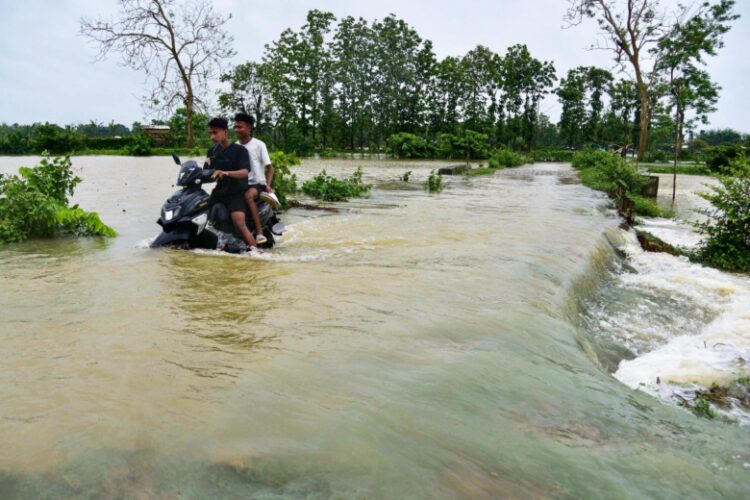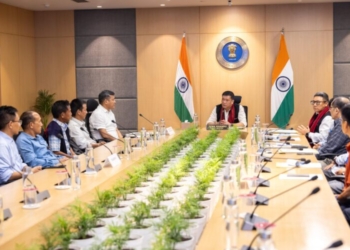Guwahati: At least 18 of 31 districts in Assam have been hit by the first wave of monsoon floods, affecting more than 30,000 people in the state, an official said on Monday.
Although there have been no casualties so far due to floods, several bridges and numerous roads have been either submerged or damaged due to rising levels of water.
Many river embankments have also suffered damage.
Meanwhile, the regional centre of the India Meteorological Department (IMD) at Guwahati has predicted ‘very heavy’ to ‘extremely heavy rainfall’ across several districts till Thursday.
On Monday, the Regional Meteorological Centre (RMC) of IMD in Guwahati forecast ‘heavy rainfall’ (above 20cm in 24 hours) over districts including Kokrajhar, Chirang, Baksa, Barpeta, and Bongaigaon.
Also, the districts of Dhubri, Kamrup, Kamrup Metropolitan, Nalbari, Dima Hasao, Cachar, Goalpara, and Karimganj are expected to get ‘heavy’ to ‘extremely heavy’ rainfall. For Tuesday, the RMC has issued an ‘Orange Alert’, and for the next two days, a ‘Yellow Alert’.
According to Assam State Disaster Management Authority (ASDMA), monsoon floods have affected lives in Biswanath, Chirang, Darrang, Dhemaji, Dhubri, Dibrugarh, Golaghat, Hojai, Kokrajhar, Lakhimpur, Nagaon, Nalbari, Sonitpur, Tamulpur, Udalguri, Cachar, and Kamrup districts.
The floodwaters are causing agony for 30,729 people in 444 villages, and some of them had to leave their homes in search of shelter in relief camps.
Seven districts have already established 25 relief camps, and the state government has instructed the remaining districts to keep the camps prepared.
According to the ASDMA report, three places in Biswanath, Nagaon, and Nalbari have partially damaged embankments.
In 11 districts, including Kokrajhar, Darang, Goalpara, and Nalbari, among others, infrastructure comprising PWD roads, schools, government buildings, houses, and other structures have been damaged. Authorities said that damaged embankments are being repaired.
This year’s flood has so far inundated more than 4,741 hectares of cropland, affecting more than 16,700 livestock. The farmers anticipate losing a variety of crops.
Numerous areas of the state experienced erosion as a result of the constant rainfall. From Dima Hasao, Karimganj, and Kamrup Metro districts, landslides have been recorded. The connectivity of the roads and railroads, however, has not yet been affected.
Urban flooding has been reported in six districts, including Cachar and Kamrup Metro. The majority of water logging, in the opinion of the authorities, are caused by blocked drains, which occurred as a result of plastic garbage being dumped into the sewers.
(IANS)

















